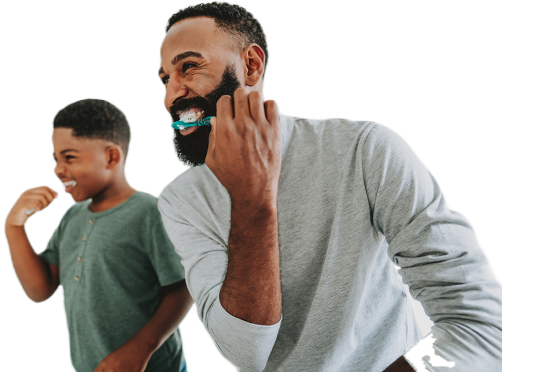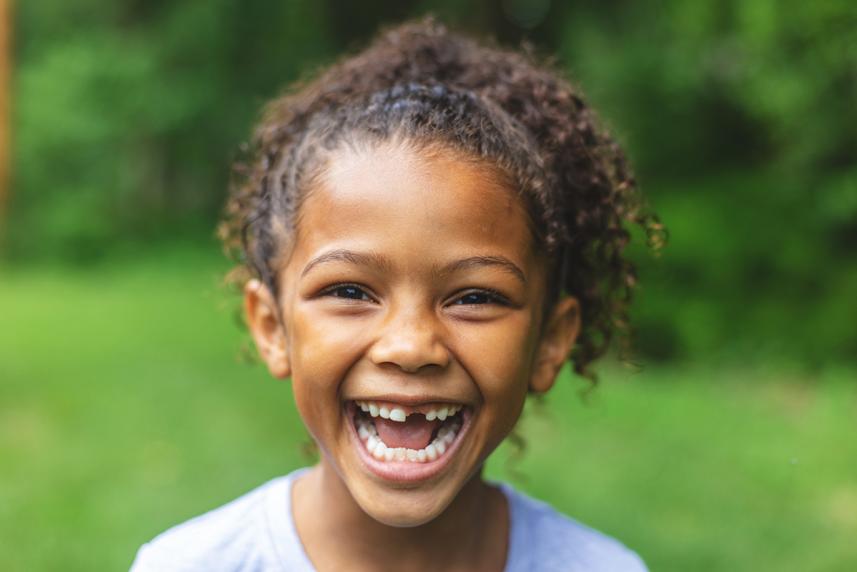
Your Premier Access plan makes it easy. No travel. No scheduling hassles. No additional cost to you! Click below to find your school and sign up.*
*You’ll be directed to MySchoolDentist to complete a permission form.
Your child’s first loose tooth is a sign that they’re growing up. Here’s how to help them through it.

The first loose tooth is a big deal for kids and parents alike. It’s a major milestone on the road to growing up.
Kids’ baby teeth (or primary teeth) usually start to fall out between ages 6 and 7. All baby teeth are typically gone by age 12.
Still, every child is different, says Scott Sachs, D.D.S., a pediatric dentist in Norfolk, Virginia, and a member of the American Academy of Pediatric Dentistry. “The textbook says you lose your first tooth at around 6, but my son lost his at age 4 and a half,” he says.
So, other than getting ready for a visit from the tooth fairy, how can you help your child handle their loose baby teeth? Here are some tips for what to do (and what not to do) to keep your child’s mouth healthy and comfortable.
The best way to help a loose tooth fall out is for kids to gently wiggle it with their tongue. This helps the process along naturally.
You or your child can also try wiggling and gently pulling the tooth with your hands. “After washing the hands to make sure they’re clean, keep working on it,” says Dr. Sachs.
So, wiggle away! Just do it cleanly and carefully.

Your Premier Access plan makes it easy. No travel. No scheduling hassles. No additional cost to you! Click below to find your school and sign up.*
*You’ll be directed to MySchoolDentist to complete a permission form.
Seeing your child in pain may make some parents worry. But it’s all totally normal. Try to stay calm and relaxed so that your child feels the same way about losing their baby teeth.
Research shows that parents and dentists can influence how kids view loose teeth. Most children have positive feelings about losing their first tooth rather than fear. You can play a role in encouraging that.
By acting excited instead of anxious, you’ll help your child see this process as a natural part of growing up.
If your child is in pain after a tooth falls out, give them a dose of acetaminophen or ibuprofen. If their gums are inflamed, this will help. If there’s minor bleeding, give your child a small piece of gauze to bite on for a few minutes.
These simple steps will help you ease your child’s discomfort. That will help you both feel better.
Whether a baby tooth is loose or has already fallen out, make sure your child keeps gently brushing their teeth. Otherwise, the area can get inflamed or infected.
Even if it feels a little sensitive, it’s better for your child to brush and keep their mouth clean. If this hurts a bit, make sure your child is using a soft toothbrush. (Find expert tips to help your child develop good brushing habits here.)
It’s all right to give your child the same foods they normally eat when they have a loose tooth. “There are no food restrictions,” says Dr. Sachs. “You could even suggest your child bite into an apple to help the loose tooth along.”
The same holds true after the tooth falls out. But if your child is feeling discomfort or sensitivity, you can stick with softer foods until the gums heal.
You might think giving your child a cold drink with a straw will soothe their mouth after they lose a tooth. But it could do more harm than good.
Sucking from a straw can mess up the natural, healthy blood clotting process that happens after a tooth falls out. Instead, have your child sip from a regular cup that won’t get in the way of their gums healing.
Soon enough, a permanent tooth will come in to replace that lost baby tooth, and your child will be one step closer to their grown-up smile.
Sources: